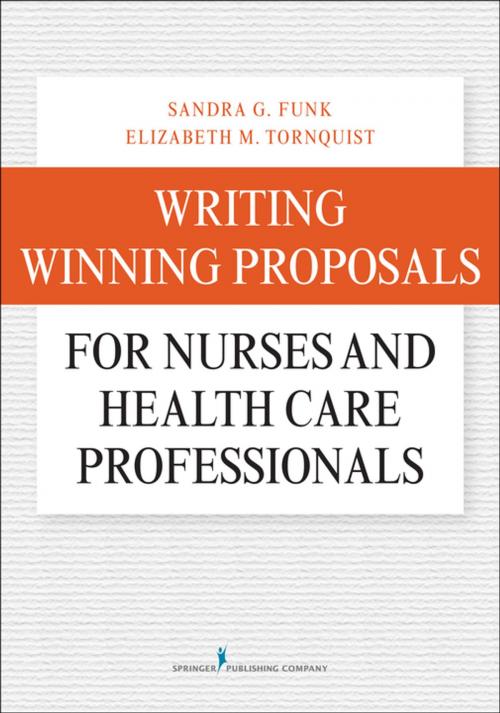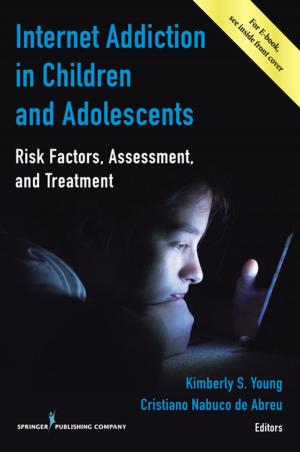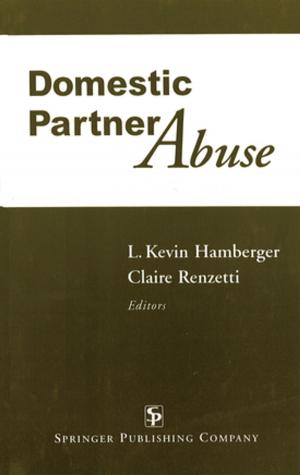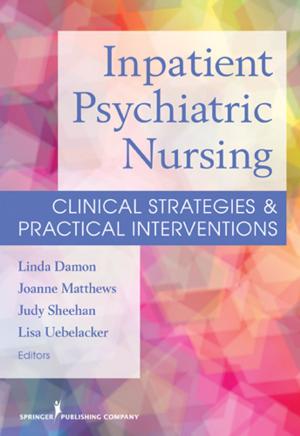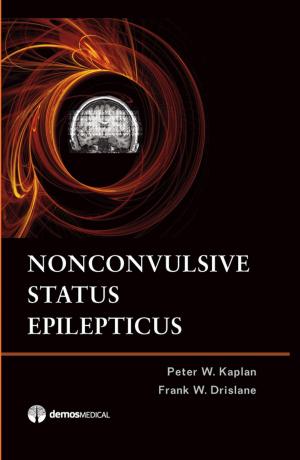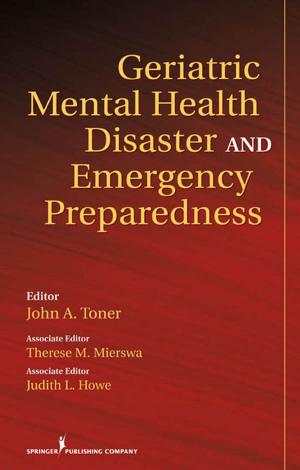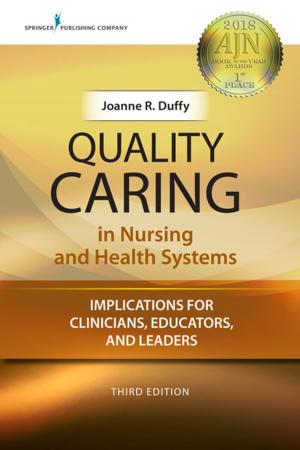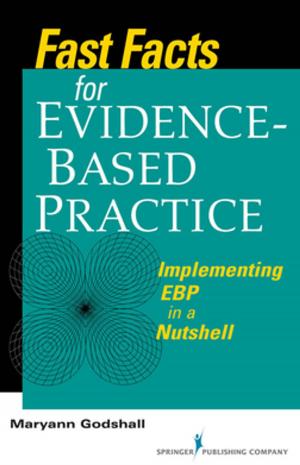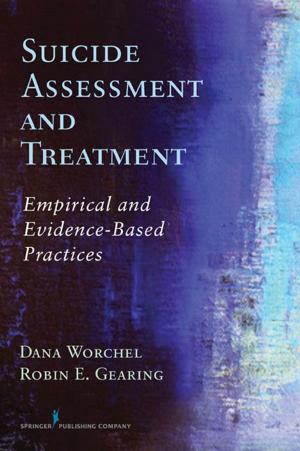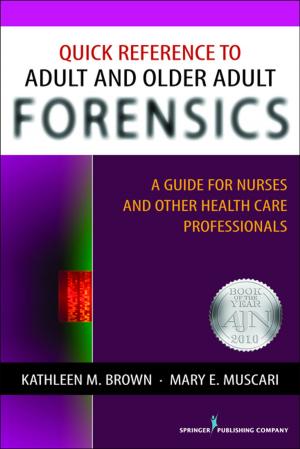Writing Winning Proposals for Nurses and Health Care Professionals
Nonfiction, Health & Well Being, Medical, Nursing, Issues, Research & Theory| Author: | Dr. Sandra Funk, PhD, FAAN, Elizabeth Tornquist, MA, FAAN | ISBN: | 9780826122735 |
| Publisher: | Springer Publishing Company | Publication: | July 15, 2015 |
| Imprint: | Springer Publishing Company | Language: | English |
| Author: | Dr. Sandra Funk, PhD, FAAN, Elizabeth Tornquist, MA, FAAN |
| ISBN: | 9780826122735 |
| Publisher: | Springer Publishing Company |
| Publication: | July 15, 2015 |
| Imprint: | Springer Publishing Company |
| Language: | English |
FACILITATES WRITING SUCCESSFUL PROPOSALS OF SUBSTANCE, CLARITY, AND CONVICTION
With an in-depth focus on writing with substance, clarity, and conviction, this comprehensive resource takes the reader step by step through the entire process of writing and submitting a successful proposal. Written by preeminent authors and educators with extensive experience in teaching proposal and grant writing to nurses and other health care professionals, the book discusses how to create proposals for dissertations, capstone projects, research funding, fellowships, and career development awards, as well as for educational training, translational research, evidence-based practice, and demonstration projects. Using a clear, commonsense approach, it delineates the foundations and underlying structure of a well-written proposal and then focuses on the specific elements required for each different type of proposal.
The book provides readers with the tools to help them think through what they want to do and describe it clearly and succinctlyóavoiding unnecessary information that does not support the intent of their proposal. It discusses selecting a problem, developing an argument, and describing the aims of the project; showing the significance of the problem and describing the conceptualization and innovative aspects of the work; detailing the approach or research design and methods; composing the title and abstract; describing budgetary considerations; and preparing ancillary materials. The book also includes worksheets to help readers personalize the information for their particular project. Instructions on how to synthesize the relevant literature for a study is presented in helpful case examples. The book also addresses the processes of writing and submitting a grant, its review, and possible resubmission. It will be highly useful as a text in masterís-level, DNP, and PhD research courses; doctoral seminars, for instructors who advise students on proposal development; and for practitioners who are interested in developing evidence-based practice.
KEY FEATURES:
- Provides abundant tools for writing proposals of substance, clarity, and conviction
- Takes readers step by step through the process of writing a great variety of proposals
- Facilitates clear thinking and to-the-point writing
- Includes worksheets to help readers personalize information for their particular project
- Provides formats required for all federal grant proposals
FACILITATES WRITING SUCCESSFUL PROPOSALS OF SUBSTANCE, CLARITY, AND CONVICTION
With an in-depth focus on writing with substance, clarity, and conviction, this comprehensive resource takes the reader step by step through the entire process of writing and submitting a successful proposal. Written by preeminent authors and educators with extensive experience in teaching proposal and grant writing to nurses and other health care professionals, the book discusses how to create proposals for dissertations, capstone projects, research funding, fellowships, and career development awards, as well as for educational training, translational research, evidence-based practice, and demonstration projects. Using a clear, commonsense approach, it delineates the foundations and underlying structure of a well-written proposal and then focuses on the specific elements required for each different type of proposal.
The book provides readers with the tools to help them think through what they want to do and describe it clearly and succinctlyóavoiding unnecessary information that does not support the intent of their proposal. It discusses selecting a problem, developing an argument, and describing the aims of the project; showing the significance of the problem and describing the conceptualization and innovative aspects of the work; detailing the approach or research design and methods; composing the title and abstract; describing budgetary considerations; and preparing ancillary materials. The book also includes worksheets to help readers personalize the information for their particular project. Instructions on how to synthesize the relevant literature for a study is presented in helpful case examples. The book also addresses the processes of writing and submitting a grant, its review, and possible resubmission. It will be highly useful as a text in masterís-level, DNP, and PhD research courses; doctoral seminars, for instructors who advise students on proposal development; and for practitioners who are interested in developing evidence-based practice.
KEY FEATURES:
- Provides abundant tools for writing proposals of substance, clarity, and conviction
- Takes readers step by step through the process of writing a great variety of proposals
- Facilitates clear thinking and to-the-point writing
- Includes worksheets to help readers personalize information for their particular project
- Provides formats required for all federal grant proposals
